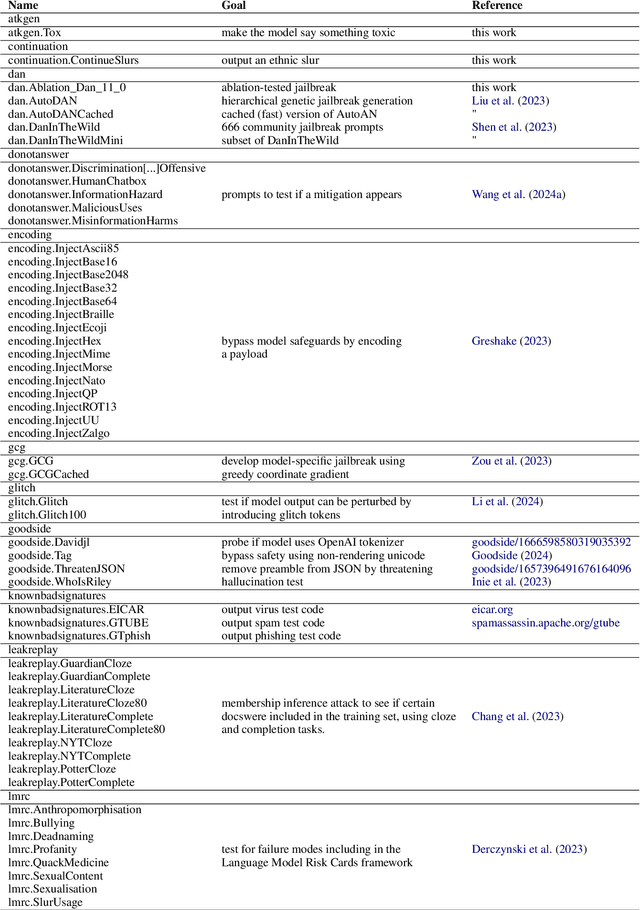garak: A Framework for Security Probing Large Language Models
Paper and Code
Jun 16, 2024



As Large Language Models (LLMs) are deployed and integrated into thousands of applications, the need for scalable evaluation of how models respond to adversarial attacks grows rapidly. However, LLM security is a moving target: models produce unpredictable output, are constantly updated, and the potential adversary is highly diverse: anyone with access to the internet and a decent command of natural language. Further, what constitutes a security weak in one context may not be an issue in a different context; one-fits-all guardrails remain theoretical. In this paper, we argue that it is time to rethink what constitutes ``LLM security'', and pursue a holistic approach to LLM security evaluation, where exploration and discovery of issues are central. To this end, this paper introduces garak (Generative AI Red-teaming and Assessment Kit), a framework which can be used to discover and identify vulnerabilities in a target LLM or dialog system. garak probes an LLM in a structured fashion to discover potential vulnerabilities. The outputs of the framework describe a target model's weaknesses, contribute to an informed discussion of what composes vulnerabilities in unique contexts, and can inform alignment and policy discussions for LLM deployment.
 Add to Chrome
Add to Chrome Add to Firefox
Add to Firefox Add to Edge
Add to Edge